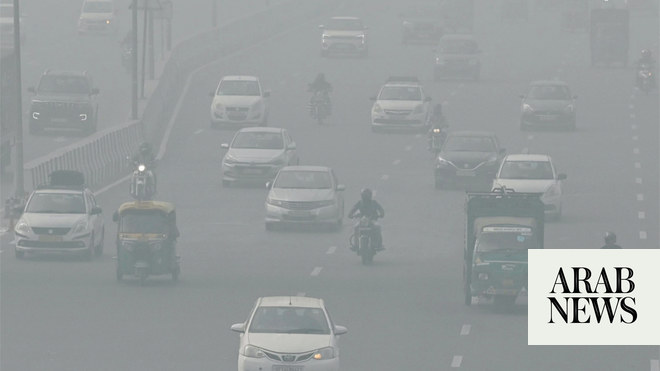
India’s capital Delhi has ordered all primary schools to cease in-person classes until further notice due to worsening pollution in the sprawling megacity, while over 100 miles away the smog was so thick it obscured the Taj Mahal monument.
Delhi and the surrounding metropolitan area, home to more than 30 million people, consistently tops world rankings for air pollution in winter which is estimated to reduce life expectancy for the capital’s residents by up to seven years.
The pollution has become an annual source of misery for those living in Delhi, with various piecemeal government initiatives failing to measurably address the problem.
“Due to rising pollution levels, all primary schools in Delhi will be shifting to online classes, until further directions,” chief minister Atishi, who goes by one name, announced on the social media platform X on Thursday.
The annual smog crisis also prompted numerous other disruptions across the city and throughout north India, including delays and cancellations to flights and trains. Hospitals reported a surge in patients coming in with breathing and gastrointestinal issues linked to the pollution, which doctors say is driving a health crisis in the city.
The government on Thursday also banned all non-essential construction and appealed to citizens to use more public transport and avoid using coal and wood for heating, without saying how long the measures would be in place.
Air quality across northern India has deteriorated over the past week. Levels of PM2.5 pollutants – dangerous cancer-causing microparticles that enter the bloodstream through the lungs – were recorded more than 50 times above the World Health Organization’s recommended daily maximum on Wednesday.
The smog is primarily blamed on stubble burning by farmers elsewhere in India to clear their fields for ploughing, as well as factories and traffic fumes.
Cooler temperatures and slow-moving winds worsen the situation by trapping deadly pollutants each winter, stretching from mid-October until at least January.
India’s supreme court this October ruled that clean air was a fundamental human right, ordering both the central government and state-level authorities to take action.
But critics say arguments between rival politicians heading neighbouring states – as well as between central and state-level authorities – have compounded the problem.
Politicians are accused of not wanting to anger key figures in their constituencies, particularly powerful farming groups.
Delhi authorities have launched several initiatives to tackle pollution, which have done little in practice.
A new scheme unveiled this month to use three small drones to spray water mist was derided by critics as another “band-aid” solution to a public health crisis.
The choking smog across Delhi came as researchers warned that planet-warming fossil fuel emissions would hit a record high this year, according to new findings from an international network of scientists at the Global Carbon Project.
The problem of air pollution is a national crisis across India, the world’s most populous country. A 2019 study in The Lancet medical journal attributed 1.67m premature deaths in India to poor quality air.












